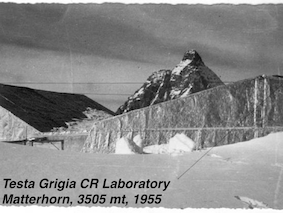Speaker
Dorota Sobczynska
(University of Lodz)
Description
The efficiency of the gamma/hadron separation worsens significantly at low energies in Imaging Air Cherenkov Telescopes (IACTs). This observed effect was partially explained by the occurrence of a hardly reducible hadronic background (i.e. detected images that are formed mainly by the light from a single electromagnetic or a single pi0 sub-cascade in the proton induced shower). IACTs also record events containing Cherenkov light from at most two electromagnetic sub-cascades, which don't have to be products of a single pi0 decay in the hadron initiated showers. In this paper, the impact of at most two electromagnetic sub-cascades events on the primary gamma-rays selection was studied using the Monte Carlo simulations. We investigate how the total fraction of at most two sub-cascades events in the expected total protonic background depends on the hadron interaction models (GHEISHA and FLUKA), trigger threshold, reflector area and altitude of the observatory. We show that the efficiency of the gamma/hadron separation is anti-correlated with the contribution of at most two electromagnetic sub-cascades events in the proton initiated showers below 200 GeV. The influence of at most two electromagnetic sub-cascades events on the gamma-ray selection is similar to the effect of the single electromagnetic sub-cascade and singe pi0 events in IACT observations. The occurrence of all these images in the data collected by IACTs reduces the efficiency of the gamma/hadron separation at low energies.
Author
Dorota Sobczynska
(University of Lodz)
Co-author
Katarzyna Adamczyk
(Unversity of Lodz)

